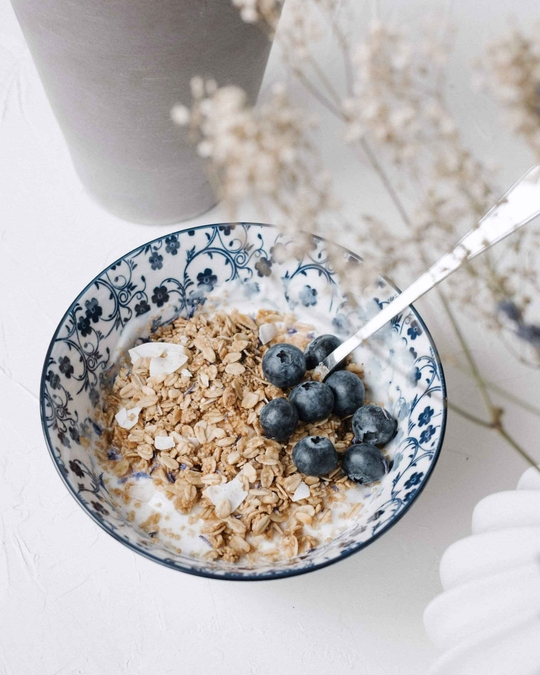September 1st marks the start of Polycystic Ovarian Syndrome (PCOS) awareness month, and for many women it symbolizes a time to acknowledge the challenges this diagnosis entails.
You may have heard more about PCOS in recent social media channels and news, and for good reason. PCOS is one of the most common ovulatory disorders which can impact a woman’s fertility and conception.
Since this condition is becoming more prevalent, let’s unpack exactly how PCOS can impact conception and reproductive health.
- PCOS impacts ovulation because of higher levels of androgens (growth hormones). Androgen levels are typically higher in males, and due to this higher level in women with PCOS, it can impact egg development and ovulation. Some women may not ovulate and some may experience longer cycle lengths, which can increase challenges of conception.
- PCOS symptoms can vary but may include hirsutism (excessive hair growth), acne/skin concerns, fatigue, mood swings, disordered eating/binge eating and difficulty with weight loss due to insulin resistance.
- PCOS may impact lactation and one’s breast/chestfeeding experience since it’s a hormonal issue. With PCOS, there are often challenges with conception and then concerns around milk supply as the hormone imbalances can impact breast development prior to pregnancy and the regulation of milk supply.
Even with the prevalence of PCOS, which now is present in 1 of 6 women, it can often go undiagnosed or be misdiagnosed, so it is vital to have an evaluation from a skilled endocrinologist to have a complete lab assessment. Working with a Registered Dietitian can be a supportive strategy for many as the link between nutrition, exercise and improving health can support optimal ovulation and reduce frustrating symptoms associated with PCOS.
So what shifts can you make if you are struggling with PCOS?
Balance carbohydrate choices
There is so much misinformation on carbohydrates. Many sources suggest that a low carbohydrate diet is supportive of PCOS, or encourage a gluten-free diet. Conversely nutrition science suggests that PCOS can best be supported through consistent carbohydrate intake, not the restriction of carbohydrates. Restricting carbohydrates for women with PCOS leads to increased stress levels, and often overeating or binge eating.
Since many individuals with PCOS may be insulin resistant it can be supportive to aim for complex carbohydrate choices that are rich in fiber. Examples include: sweet potato, whole grains such as brown rice and whole grain pasta, quinoa and legumes.

Consume adequate protein
Experiment with different protein options to see how different foods impact the way you feel physically. Aiming for 15-30g of protein with each meal and having a protein source with snacks can provide balanced blood sugars which supports a balanced mood, reduces carbohydrate cravings and promotes satisfaction.
Quality protein sources include animal products such as chicken, fish, beef, eggs, legumes and nuts and lean dairy such as greek yogurt. Aim for an anti-inflammatory foods
Inflammation has become a bit of a buzz word associated with different foods. It’s important to recognize that inflammation can come from many sources in addition to food, from our environment, lifestyle, stress and more.
When it comes to reducing inflammation, looking for anti-inflammatory foods can be supportive for hormones. Anti-inflammatory foods are rich in color (antioxidants), reduce free radicals which can damage cells and increase stress, high in fiber and omega 3 fatty acids. Examples include colorful fruits and vegetables (any and all you can imagine, eat the rainbow!), and fish such as salmon and tuna which contain omega 3 fatty acids.

Adjust your lifestyle
Food is a HUGE part of the picture of PCOS, however it is just one piece of the puzzle of what can impact your symptoms and ovulation. Factors such as caffeine consumption, exercise patterns, stress management and supplements are all areas that can be supportive to hormone balance overall.
- Caffeine: Everyone’s sensitivity to caffeine is different, however studies show that reducing caffeine or limiting it to once a day can be supportive overall in reducing inflammation.
- Exercise: Don’t make it a chore to move! Find something you love and just get moving, even if it’s yoga, dancing, gentle walks outside. Finding a movement practice that prioritizes consistency is more valuable than intense and vigorous exercise that happens less frequently. Experiment with different types of activity to find what works best for you.
- Stress management: We all know stress impacts everything we do from our emotions to our health, and for those with PCOS stress can impact insulin resistance and make it more difficult to have balanced blood sugars overall. Implement some self care strategies that can help you cope with the inevitable frustration and emotions that come alongside the journey of fertility, breastfeeding and life.
- Supplements such as ovasitol, omega 3 fatty acids and inositol are all very commonly recommended to support symptom management of PCOS. Supplement recommendations should be individualized based on your history, diet, lifestyle etc so work with a Registered Dietitian can provide you the perfect regimen to support your health.
Tips for breast/chestfeeding
Reaching out to a lactation consultant (IBCLC) during pregnancy and postpartum can be a great start to help you know how you can meet your breastfeeding goals with PCOS. Since symptoms vary, a lactation consultation will be able to help you assess if there are any needed strategies to meet your goals to feed your baby!
Most important to acknowledge this PCOS awareness month is that you are not alone! Finding community support, support from your healthcare providers, mental health team and friends/loved ones can help you feel your best physically and emotionally when navigating PCOS! Take extra good care of yourself this month.
Authored by Jaren Soloff, RD IBCLC
Founder of Full CRCL
Disclaimer: Cake does not provide medical advice, diagnosis, or treatment. Any information published on this website or by this brand is not intended as a substitute for medical advice, and you should not take any action before consulting with a healthcare professional.
LIKE WHAT YOU READ?
Join CakeMama Club & get 10% OFF your first order!
Plus you’ll get tips + tricks for pregnancy, postpartum & breastfeeding, get member-only offers, earn CakeCoins every time you shop + more. Learn more
















































































































